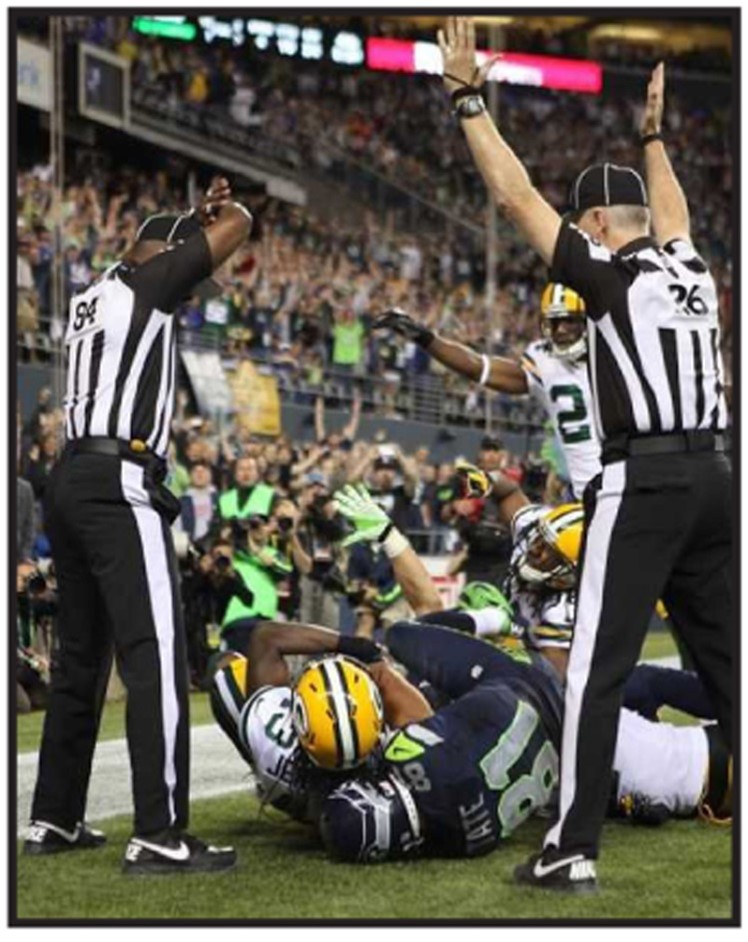
It’s become known as the Fail Mary.
Lance Easley calls it something else: the worst moment of his life.
This fall will mark the 10th anniversary of the Monday Night Football contest when Easley, a replacement referee, ruled that a desperation pass by then-Seattle Seahawks quarterback Russell Wilson was a touchdown. It was the game’s final play. Seahawks win, Green Bay Packers lose. That’s Easley, No. 26, signaling TD in the end zone.
Unfortunately, his fellow official is signaling an interception by the Packers, something that appeared to be confirmed by endless replays. Ultimately, the officials decided to award a touchdown, and thus the game, to the Seahawks.
Within minutes of that controversial decision, America’s social media exploded in outrage. Easley became Twitter’s favorite whipping boy.
As sports columnist Dan Wetzel pointed out a few years later, Lance Easley had an actual life before that game. He was a vice-president for Bank of America, a husband and father, and a regular church attender.
Suddenly he was demonized by fans and gamblers. He was incompetent. Or a fool. Or a Cheesehead hater.
The thought of leaving his house induced panic attacks. “The vitriol, the death threats, all of it,” he says. “I’ve had identity theft. I joked, ‘who would want to be me?’”
Easley, who had a history of struggling with depression, imploded. What followed was a journey through hell: bankruptcy, divorce, suicidal thoughts, and two stints at a mental health facility in California, where he was diagnosed with PTSD – post-traumatic stress disorder.
Gradually he began to reclaim something of a normal life. What did he learn after the Fail Mary tainted him with a notoriety that he neither sought nor deserved? “Life is a game. Four downs and you get another first.”
According to Wetzel, he “asks the fans to exhale, and before blasting the official consider that there is a real person on the other end. [A sports referee or umpire] isn’t the first or last person to make a mistake at work. His just happened to be nationally televised.”
Easley has since written a book that is aptly titled Making the Call: Living with Your Decisions. He asserts that life is about much more than making a single call. It’s about deciding in advance how you intend to live with all of the calls you make.
That process is unquestionably part of what it means to be a spiritually healthy person.
And it often comes down to distinguishing between things that are worth remembering and things that are definitely worth forgetting.
God calls us to remember his grace, his mercies, and his provision. Such active recollection yields a thankful heart and is a powerful expression of faith.
But other things need to go into the Forget About It file.
In Philippians 3:13-14 the apostle Paul writes: “But one thing I do: Forgetting what is behind and straining toward what is ahead, I press on toward the goal to win the prize for which God has called me heavenward in Christ Jesus.”
Or as Paul might put it today: Just because you’ve been sacked three straight times doesn’t mean you can’t get a first down on your next play.
Lance Easley can’t change yesterday. Neither can we.
But we can choose to change all of our tomorrows by cultivating trust in the God who is Lord over the past, the present, and the future.
